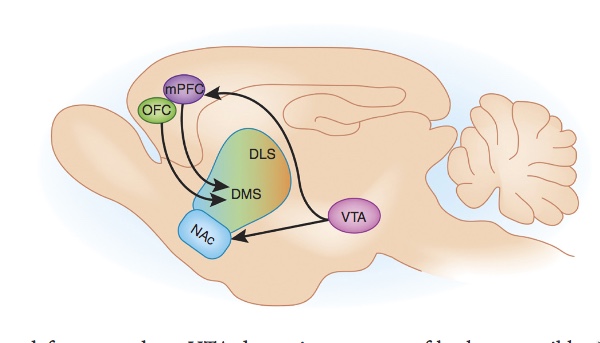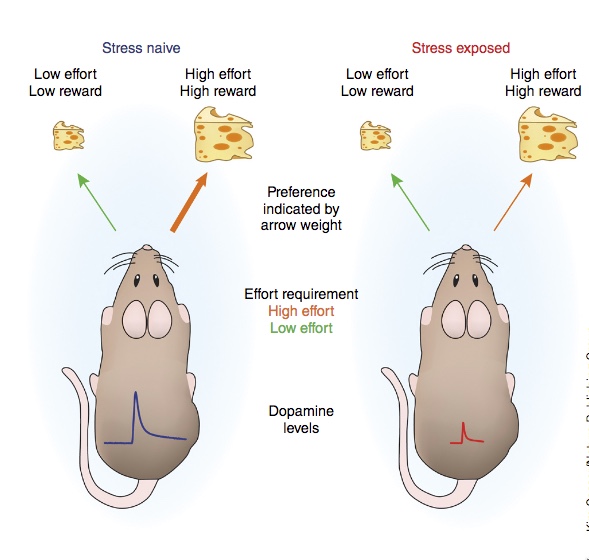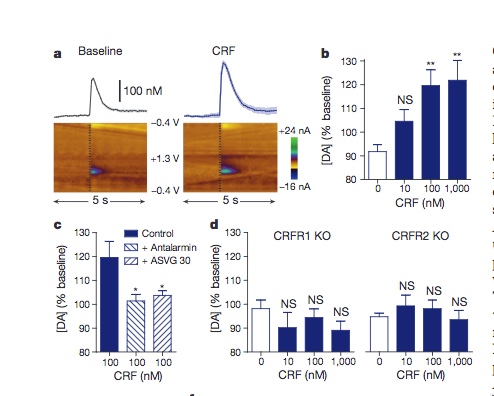Stress exposure is one of the major triggers of unipolar depressive disorders, debilitating conditions whose core symptoms include changes in reward processing and responsiveness to environmental stimuli. However, despite the importance of this motivational dysregulation, the relationship between depression and neural processes that mediate appetitive responses to environmental has still not been precisely synthesized. In a collaborative effort, Drs. Phillips and Chavkin have identified a neurochemical signaling pathway that is disrupted by stress exposure in a manner that may be instrumental in mediating motivational symptoms of depressive disorders. They have demonstrated that corticotropin-releasing factor (CRF) increases dopamine release in the nucleus accumbens of stress-naïve male animals, but stress exposure ablates this neurochemical crosstalk for a prolonged period of time. This proposed work will be directed towards characterizing the role of CRF/dopamine interactions in mediating reward processing and its disruption by stress exposure and in particular the changes that take place in responding to reward-associated stimuli. Whether CRF/dopamine interactions are similar in females or whether they are sexually dimorphic will also be tested. The importance of integrating females into these studies is not only because they represent half of the population, but also because their response to stressors differ from those in males both quantitatively and qualitatively.



